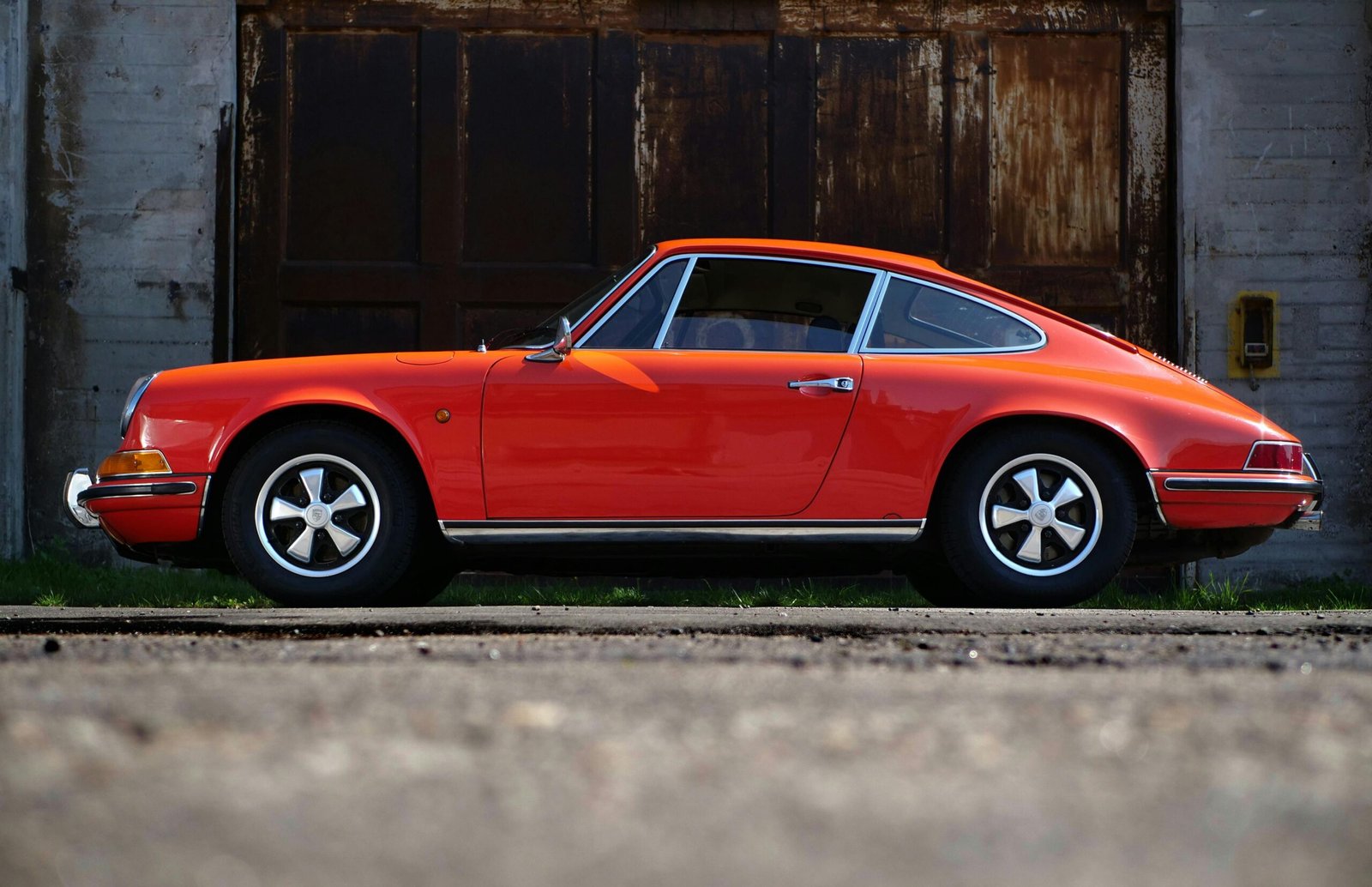This Week in Classic Cars: Showstoppers, Barn Finds & Summer Vibes
Classic cars aren’t just vehicles — they’re stories on wheels. And this week, those stories rolled through seaside shows, school…
Investing in Classic Cars: A Guide to High-Value Automotive Assets
Why Classic Car Investing Is Accelerating in Popularity
Classic cars are more than nostalgic machines—they’re appreciating luxury assets. From rare Ferraris to vintage Porsche 911s, these vehicles combine aesthetic appeal with potential financial gain. For investors seeking alternative assets that offer both emotional satisfaction and market upside, classic cars deliver.
The Rise of Classic Cars as Alternative Investments
Once a niche hobby for car lovers, classic car collecting is now part of the broader luxury investment market—alongside art, fine wine, and vintage watches. As auction prices climb and demand for rare vehicles grows, investors are recognizing classic cars as long-term stores of value.
What Qualifies as a Classic Car?
Not every old car is investment-worthy. A vehicle is generally considered “classic” if it’s over 20–30 years old, but rarity, provenance, performance, and cultural impact are just as important. Think: 1967 Shelby GT500 over a basic ‘60s Mustang. Scarcity and storytelling are what drive collector interest.
Why Investors Love Tangible Assets Like Classic Cars
Unlike stocks or NFTs, classic cars are tangible—you can touch, showcase, and even drive them. This physical presence adds emotional value and uniqueness to your portfolio. Plus, in a digital age, owning a physical, appreciating asset is increasingly attractive.
Best Classic Car Brands to Invest In
Certain marques dominate the investment landscape. Top-performing investment-grade brands include:
- Ferrari – Especially models like the 250 GTO and Testarossa
- Porsche – Vintage 911s and the 356 remain strong performers
- Aston Martin – Iconic, stylish, and culturally significant (James Bond, anyone?)
- Mercedes-Benz – Especially the SL line and pre-war models
These names consistently command top prices at auctions and private sales.
The Power of Rarity: How Scarcity Drives Classic Car Prices
Classic car values are closely tied to how rare and unique the vehicle is. Limited production runs, one-off designs, and cars with historic racing pedigree tend to outperform others. A car’s desirability grows exponentially when it’s part of an exclusive production or racing history.
Provenance: The Backstory That Adds Value
Who owned the car? Where did it race? Did it belong to a celebrity or feature in a film? Provenance can significantly increase a car’s market value. Documented ownership history, restoration records, and verified authenticity all add credibility and collector appeal.
Should You Restore or Keep It Original?
Original condition can increase value—especially when the patina tells a compelling story. However, professionally restored classics, done to factory specs, also attract top-tier investors. The key is quality: Poor restorations can kill value; expert ones can elevate it.
How Mileage Impacts Classic Car Valuation
With classic cars, extremely low mileage isn’t always best. Vehicles that have been regularly driven and maintained often perform better long-term. Moderate mileage combined with proper care reflects usability without excessive wear.
Classic Car Models Proven to Appreciate
Some models have earned a reputation for consistent value growth:
- Ferrari 250 GTO
- Porsche 911 (early air-cooled models)
- Jaguar E-Type
- Lamborghini Miura
- BMW 507
These icons represent a smart mix of rarity, brand prestige, and market demand.
The Role of Auctions in Classic Car Pricing
Prestigious auctions such as RM Sotheby’s, Bonhams, and Gooding & Company often set market benchmarks. Watching auction trends can help investors identify appreciating models and emerging buyer interest across global markets.
How Pop Culture Impacts Classic Car Demand
Movies and celebrities drive spikes in value. Case in point: The Aston Martin DB5 surged in value after appearing in James Bond films. Likewise, the DeLorean’s fame stems directly from Back to the Future. When a car becomes a cultural icon, its value skyrockets.
Classic Cars as Passion-Fueled Investments
These are emotional assets. Investors buy not just for returns, but for the driving experience, the aesthetics, and the lifestyle. The sound, smell, and feel of a classic engine are priceless to many owners—making these “passion investments” worth the ride.
Risks of Investing in Classic Cars
No asset class is without risk. Classic car markets can be cyclical, and values may fluctuate with trends, economic downturns, or even auction weather. Maintenance costs and secure storage also eat into profits. Always factor in the total cost of ownership.
Maintenance and Storage: Protecting Your Investment
To retain value, a classic car must be meticulously maintained and properly stored. Ideal conditions include climate-controlled garages and regular mechanical checks. Neglect can lead to rapid depreciation, while diligent care preserves long-term value.
How to Spot Investment Opportunities in Classic Cars
Look for undervalued models with limited production, rising pop culture relevance, or emerging collector interest. Do your homework—study historical price trends, check auction archives, and inspect provenance before committing.
Global Trends in Classic Car Investment
Interest in classic cars is growing in Asia, the Middle East, and Latin America. As wealth expands globally, so does appetite for luxury assets. Understanding international demand can help investors diversify and time purchases wisely.
Tax Implications of Classic Car Sales
Profits from selling a classic car may be subject to capital gains tax. Tax rules vary by country, and some offer exemptions for collectibles. Always consult a tax advisor to navigate holding periods, deductions, and potential liabilities.
Future Trends: What’s Next for Classic Car Investors?
New trends are emerging. Electrified classic conversions are growing in niche popularity. Gen X and Millennial investors are driving up prices of ‘80s and ‘90s performance cars. Think: BMW E30 M3, Mazda RX-7, or early Nissan GT-Rs. The market is expanding and evolving.
Final Thoughts: Are Classic Cars a Good Investment in 2025?
For those who combine a love of automobiles with a long-term financial view, classic cars are one of the most rewarding investment classes. They offer real-world enjoyment, potential for serious profit, and timeless appeal—making them a strong contender in any alternative investment portfolio.
